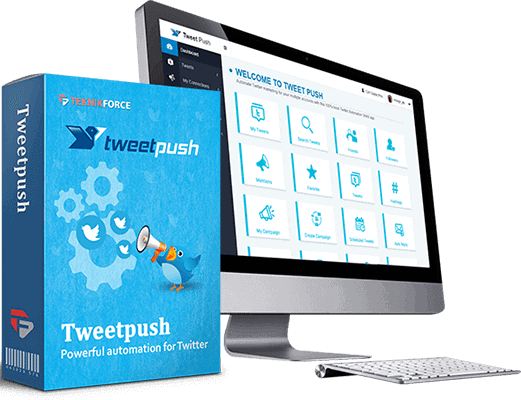
- Not Seeing the Forest Because of the Trees
- Defining the Role of a Freight Broker
- Importance of Freight Brokers in the Supply Chain
- Exploring the Benefits of Becoming a Freight Broker
- Job Opportunities and Earning Potential
- What It Takes to Become a Certified Freight Broker
- Recommended Training Programs
- Understanding the Legal Framework for Freight Brokerage
- Licensing and Compliance Requirements.
- Charting Your Course to Freight Broker Success.
- FAQ's
Not Seeing the Forest Because of the Trees
Feeling a bit overwhelmed or uncertain about where to start? I think we’ve all been there, this freight broker blueprint will put put your concerns to rest. Discover the essential steps to Becoming a Freight Broker and achieving financial independence in this comprehensive guide. Let’s dive in.
You might be thinking, “Can I really make it as a freight broker? Is this the right path for me? Will I ever find my way to profit and independence in this industry?”
But here’s the thing – those questions are your compass. They’re your ticket to a future filled with possibilities, and they’re entirely valid.
I get it; change can be daunting. The freight industry might feel like an uncharted territory right now. But remember, even the most seasoned captains of industry started with a first step.
So, what if I told you there’s a blueprint, a roadmap that can help you navigate this intricate landscape? What if I promised you clarity, guidance, and a path to not only survive but thrive as a freight broker?
Well, that’s exactly what we’re here to do. Let’s dive in.
Defining the Role of a Freight Broker
Ever wonder who’s responsible for ensuring the goods you order online reach your doorstep? That’s where a freight broker steps in. Think of them as the conductors of the logistics symphony, orchestrating the movement of cargo from point A to B.

At its core, a freight broker is a middleman, connecting shippers (those who have goods to transport) with carriers (those with the trucks to move them).
Essentially they’re like the matchmakers of the shipping world, pairing up cargo with the right trucks, all while handling the logistics, paperwork, and ensuring everything runs smoothly.
Importance of Freight Brokers in the Supply Chain
You might be wondering, “Do we really need these middlemen?” Well, consider this: the supply chain is a complex, ever-moving beast.
It’s like trying to coordinate a massive jigsaw puzzle with pieces constantly shifting. Without freight brokers, chaos could ensue.
Freight brokers bring order to the chaos. They have the knowledge and connections to efficiently move goods, ensuring products get to where they need to be, when they need to be there.
Without them, shippers would struggle to find reliable carriers, and carriers would have a tough time filling their trucks. It’s a delicate balance that keeps our modern world turning.
Exploring the Benefits of Becoming a Freight Broker
You might be thinking, “Okay, it sounds important, but what’s in it for me?” Well, here’s where it gets interesting. Becoming a freight broker can be a game-changer for your career. More than that actually…
Imagine having the freedom to be your own boss, set your own hours, and potentially earn a substantial income. As a freight broker, you’re not tied to a traditional 9-to-5 job.
Your earnings can soar, especially when you build a solid client base. Plus, it’s a recession-resistant industry.
Regardless of economic ups and downs, goods always need to be moved. Remember covid?
Job Opportunities and Earning Potential
Speaking of earnings, let’s look into the financial aspect. The potential to earn as a freight broker is impressive. Many new brokers earn around $40,000 to $60,000 per year, but that’s just the beginning.
Freight brokers, are often earning between 10% and 35% profit per shipment, all for matching a shipper with available trucks.
As you gain experience and establish your reputation, your income can skyrocket. Six-figure earnings are not uncommon in this field.
It’s like having a golden ticket to financial independence. But, of course, it’s not all smooth sailing. To reach those heights, you’ll need to put in the effort and dedication.
What It Takes to Become a Certified Freight Broker
Now, you might be wondering, “How do I get started?” Well, there’s a blueprint for that too.
You do not necessarily need a “certificate” to become a freight broker, although these days it seems that we need a certificate for anything.
Still, you do need the proper “authority” which is a grant of legal permission issued by the Federal Motor Carrier Safety Administration (FMCSA)
Next, you’ll have to prove your financial responsibility. This typically involves obtaining a surety bond or trust fund agreement. Essentially, it’s a financial safety net that ensures you can cover any potential damages or claims.
Recommended Training Programs
You don’t necessarily need a college degree to become a freight broker. What you do need is knowledge and skills. That’s where training programs come in.
There are various courses and programs that can provide you with the essential know-how. These programs cover everything from the basics of freight brokering to the intricacies of pricing, negotiation, and regulations.
My friend LD Sewell who has been running his own freight business for more years than he cares to remember, has a course on Udemy which he sells for around $20.00
At the end of it you will have a good understanding of what starting, operating and growing your own successful freight brokerage entails and should you decide to open your own company, you will know what to do next toward making that happen.
If you have no experience with trucking or logistics he reccommends that you take his introductory beginner level truck driving courses, so that you can begin to gain a more complete idea of what truck drivers do daily and the challenges they face.
This will help you build better relationships, communicate more effectively and obtain loads more efficiently. This will help you earn more, and have mutually beneficial relationships with your drivers, carriers, shippers and consignees.
Essentially, being able to walk the talk.
If you are ready to take the plunge and get up to speed with a certificate course, there are in depth courses available for around $150, taught by experienced brokers who teach everything they know to get you up and running.
Obviously these will take a little longer to do, but you can do them at home at your leisure. Even then they should take no longer than 3 or 4 weeks to complete.
Let’s take a quick look into the nitty-gritty of the legal and regulatory side of the freight brokerage world.
Understanding the Legal Framework for Freight Brokerage
You might be thinking, “Legal stuff? This sounds daunting.” It can be, but it’s also vital for a smooth operation.
One crucial aspect is understanding the “Carmack Amendment.” This federal law governs the liability of carriers and brokers for damaged or lost cargo. Essentially, it sets the rules for who’s responsible when things go awry during transit.
As a freight broker, you’ll need to be well-versed in these regulations to protect your clients and your business. It’s like knowing the rules of the road to avoid accidents.
Licensing and Compliance Requirements.

Licenses. To legally operate as a freight broker, you’ll need to secure a Broker Authority License. It’s another layer of protection for shippers and carriers, ensuring that brokers are accountable for their actions.
But remember, staying compliant isn’t a one-time deal. You’ll need to renew your license every five years and stay up-to-date with industry changes.
Think of it as keeping your passport current for hassle free international travel.
Charting Your Course to Freight Broker Success.
So, here we are, at the end of our journey through “The Freight Broker Blueprint: Your Path to Profit and Independence.” You’ve hung in there, absorbing all the ins and outs of the world of freight brokering.
But before we part ways, let’s address the swirling thoughts, and answer some questions that might be racing through your mind.
You could be thinking, “Is this really for me? Can I navigate this intricate landscape?” It’s perfectly natural to have a touch of uncertainty, like standing on the edge of a vast ocean, wondering if you’re ready to set sail.
But let me tell you, a sea of opportunity awaits. Remember the benefits we’ve explored together – the freedom, the earning potential, the resilience of this industry.
So while it’s a journey filled with possibilities, where the destination is financial independence and career fulfillment, you may still be hesitant.
These are some of the more common questions people ask about freight brokering, that may help put your mind at ease.
FAQ’s
What does it take to become a successful freight broker?
What are the legal and regulatory considerations in the industry?
What tools and technology are essential for managing a freight brokerage business?
Some real-life examples of successful freight brokers?
Also consider the story of Andre Erving who started by buying a truck without a trailer and hoping to find work as a contractor hauling trailers for large companies. That plan didn’t work out because he went about things the wrong way. After beginning a freight brokerage business he eventually started a trucking company again. This time he had plenty of work in the pipeline. These days he has taught over 5,000 people how to become freight brokers without making the mistakes he made. He is a real-life example that illustrates that success is attainable with dedication and the right approach. Another success story at this link.
Get Everything You Need to Become a Successful Freight Broker by Clicking Here.
Some links on this page are affiliate links for which I may receive payment. This is at no cost to you. I am not an employee of any company mentioned and all opinions expressed here are mine and are not representative of any company.









